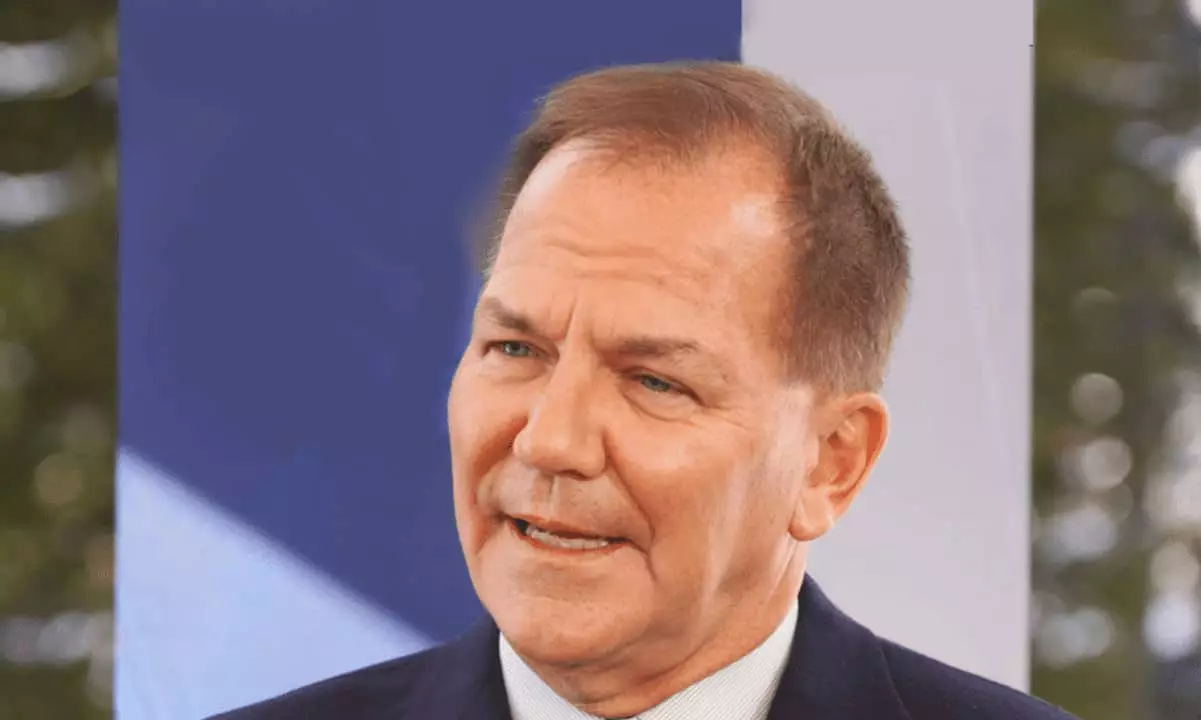As global economies navigate the tumultuous waters of fiscal policies and investment strategies, insights from seasoned investors can offer valuable direction. Notably, billionaire investor Paul Tudor Jones shared his perspectives on inflation and investment choices in a recent interview with CNBC on October 22. His observations encapsulate broader economic trends and present a case for alternative assets in today’s market.
Jones’s assertion that “all roads lead to inflation” resonates with many economic analysts observing the current landscape. With skyrocketing public debt—a staggering $35.7 trillion in the US and a debt-to-GDP ratio surpassing 120%—the implications are severe. Much of this debt is a result of government spending in response to economic crises, and the potential for inflation looms large as policymakers strive to stabilize economic growth. Jones contends that regardless of central bank interventions, inflation remains a pressing concern tied to mounting national debt. This assertion raises questions about the efficacy of traditional monetary policies and prompts a reevaluation of asset allocations.
While traditional investments like fixed income seem to be losing favor, Jones has opted for a diversified portfolio that includes gold, Bitcoin, and other commodities. He noted, “I own zero fixed income,” showcasing a significant shift in his investment strategy. Jones’s affinity for gold, a historically safe asset during inflationary periods, coupled with his bullish stance on Bitcoin, signifies a growing consensus among some investors: decentralized assets may mitigate the risks posed by inflation. The humor from Bitcoin advocate Anthony Pompliano, implying that Jones’s move is potentially understated, highlights the excitement within the cryptocurrency community regarding this pivot.
In the wake of Jones’s comments, the market has shown notable fluctuations, particularly in the performance of Bitcoin and precious metals. Bitcoin, which had approached its peak price shortly before the interview, has recently hovered around the $67,000 mark. Meanwhile, gold prices surged dramatically this year, hitting a historic high above $2,750, with silver following suit at its highest value since 2012. Such performance suggests that alternative assets are increasingly perceived as critical components in investment portfolios, especially as inflation continues to rise.
Contrastingly, narratives from central banks present a more optimistic outlook. The International Monetary Fund (IMF), in its World Economic Outlook released the same day as Jones’s interview, claimed that “the battle against inflation is largely won.” This assertion points to a dissonance between macroeconomic indicators and the realities faced by consumers, whose everyday expenses consistently climb due to higher fuel and food prices. While inflation rates may be stabilizing in a broad sense, the lived experiences of citizens paint a different picture and highlight the ongoing challenges at the grassroots level.
As market dynamics evolve, Jones’s insights reveal a fundamental truth: investors must remain vigilant in recognizing the intricate interplay between inflation, debt, and asset valuation. The current economic climate emphasizes the importance of diversifying portfolios to protect against inflationary pressures and economic uncertainty. The rise of decentralized assets like Bitcoin may not merely reflect speculation; rather, it may signal a paradigm shift in how investors approach economic volatility.
Paul Tudor Jones’s perspective serves as a critical touchstone for current and future investment strategies. As we venture deeper into an inflationary landscape, the growing appeal of alternative assets reveals a broader trend among investors seeking to insulate themselves against traditional economic vulnerabilities. Navigating these complexities will require both analytical rigor and a willingness to embrace change in a rapidly evolving financial environment.















